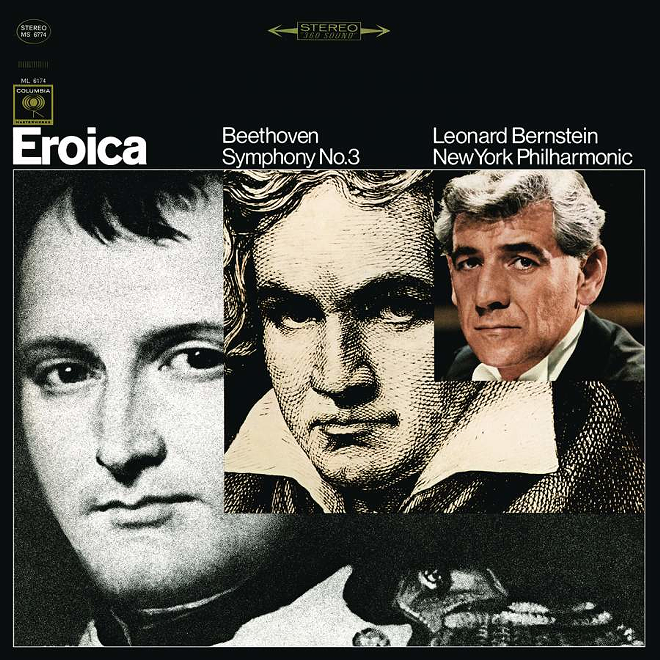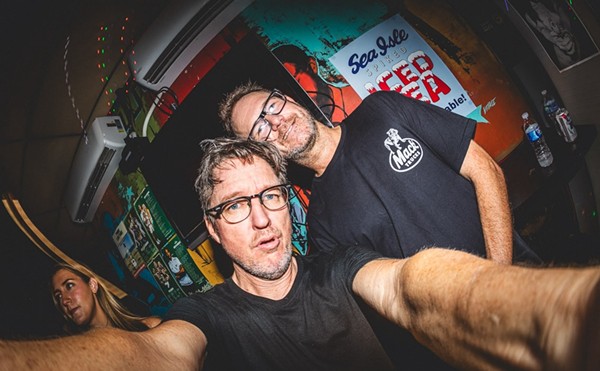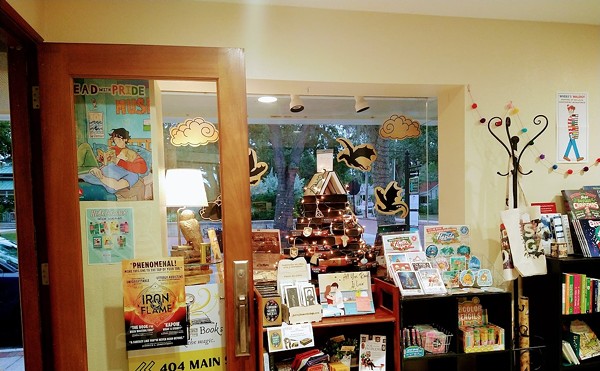
The vinyl generation is very much in search of LPs, and our library bookstore features lots of them — country, jazz, Broadway show tunes, spoken word, pop, rock and classical. Looking through our offerings the other day, and seeing the manly miens of Napoleon, Beethoven and Bernstein as they came together on this classical symphony recording, I remembered yet another time in school when I was confused by vocabulary, thinking I knew more than I did.
I had seen Beethoven's Symphony No. 3 Eroica on an album cover in my high school library, but I read it as Beethoven's Erotica, so it immediately got my attention. Eroica or Erotica — the very similarity of the vaguely familiar words made me a little queasy. I didn't know how music could be erotic, but since I thought I knew what "erotic" meant (forbidden, sinful, something to do with glands), I figured I would give it a listen.
Embarrassed by the whole notion of erotic arousal and the occasional unplanned appearance of same, I kept the album covered hidden as if it were pornography (which I had never seen anyway, except for the pin-up calendars in my Uncle David's greasy garage) as I made my way home on the school bus. I slipped into my upstairs room quietly to place the record on the turntable and gently lowered the needle to the spinning plastic disk. I awaited arousal.
I listened to the whole hour-long symphony, both sides of a 33 1/3 stereophonic LP, hoping for some suggestive spark, some soaring strings or throaty drum that might evoke whatever my teenage body conceivably found erotic. I was clueless as to how symphonic music could be arousing, but I gave it a chance. Of course, there's nothing remotely erotic about Napoleon's heroic career as conceived by Beethoven in E flat major — thus The (H)Eroica Symphony — so I returned the album greatly disappointed. And confused. And unaroused.
Here was a clear case of my simultaneously knowing too much and knowing too little. Words could be intriguing and puzzling at the same time, in fact, pretty much the same responses — appealing and appalling — that I had to my evolving 15-year-old mind and body.
My obsession and blindness with words didn't end there. This is the same yokel who later took his SAT exams, determined to use the words altruistic and forensic in my essay. I had no idea whatsoever as to how to pronounce them or what they meant, but use them I did, surely impressing the long-suffering reader evaluating my writing. Now that I think about it, I should have tried to work erotica and eroica into the essay too.
Ben Wiley, one of our Creative Loafing film reviewers, is also an advocate for paper and print. Dead trees, if you will. He volunteers at a local library bookstore and enjoys engaging with readers and their books. Our series BookStories highlights some of these Ben, Book & Beyond encounters.















